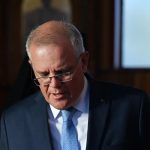Australian property vs COVID-19

A group of 146 property experts shared their views on how COVID-19 will likely impact Australia’s property market in a whitepaper produced by Ripehouse Advisory last month.
“Identifying as university academics, industry body head s and real estate agents, most of the respondents indicated that they believe the greatest impact of the virus will be felt within three to 12 months,” said Ripehouse Advisory CEO Jacob Field.
“Interestingly, a number suggested that by this time next year, prices could be higher than they are at present.”
To build upon and analyse the findings of the report, prominent property academics, Sydney University’s Peter Phibbs and Maria Belen Yanotti of The University of Tasmania weighed in on the discussion.
Professor Peter Phibbs, the Director of the Henry Halloran Trust at the University of Sydney agreed with many of the comments and observations laid out in the report, but worried that a number of the industry professionals were too optimistic in their projections.
“From where I sit, the two levers that have driven the Australian property market over the last ten years have been strong population growth and declining interest rates.
“These two items are now not present; interest rates because we are at the bottom of the cycle and population growth because of COVID-19 lockdowns.
“According to the Government, net international migration for the next financial year is forecast to shrink by 85%,” said the Professor.
The biggest drop in GDP since the Great Depression
Even when we do progress past the current virus crisis, things will simply not go back to normal.
“We are talking about the biggest drop in national GDP since the Great Depression. That wasn’t a great decade for property.
“If we do get a vaccine in 2021 things will improve but that’s not a certainty. We are also looking at zero international tourism until this happens.
“My view is that the situation could be very bleak for property for a few years especially if you are on the development side,” said Prof. Phibbs.
While Government intervention may help stimulate activity, challenging economic circumstances will likely hold back investors.
“For real estate agents, their best option might be to hope that State Governments get rid of stamp duty to increase the rate of transactions.
“But with muted price increases and tenants experiencing difficult economic circumstances and the current stretched yields, investors will be hard to find,” he concluded.
Maria Belen Yanotti, a Lecturer in Economics in the Tasmanian School of Business and Economics at the University of Tasmania sounded a more positive note for the long term.
“This general depression is not due to fundamental economic issues but has been generated by Governments due to a health emergency. So there are no economic fundamentals (in housing) that need to adjust, although we agree the system wasn’t perfect before.”
Dr. Yanotti projects that post-COVID-19 the population in Australia will continue to increase and interest rates will remain low.
“Post-COVID-19, the population will continue to grow and it will be a desirable destination, however, it is not clear when international traffic will resume.
“I think interest rates will remain low to support the economy at the macro-level for a while until there is evidence of activation and expansion,” she said.
An increase in sales
In terms of house prices, there is the potential of a large number of sales due to high unemployment and owners not being able to pay mortgage or maintain the costs of property suggests the Lecturer in Economics.
“However, Government Stimulus (fiscal and monetary policies) aim to avoid this scenario,” she said.
Dr. Yanotti anticipates that COVID-19 will bring some significant changes to the way we work with an increasing number of Australians continuing to do so remotely from home. This will, in turn, affect the housing market.
“In the recovery phase, we could potentially observe greater geographic diversification and less city concentration.
“Residents may begin to place greater importance on liveability, space and lifestyle. This will probably help several property markets (both city and regional),” she said.
Finally, while uncertain times could deter some investors, bricks and mortar may instil greater confidence than other investments.
“The property market may still provide a more stable option than the financial markets,” said Dr. Yanotti.
View the Ripehouse Advisory report COVID-19 Vs Australian Property here.
Open Forum is a policy discussion website produced by Global Access Partners – Australia’s Institute for Active Policy. We welcome contributions and invite you to submit a blog to the editor and follow us on Twitter, Facebook, Linkedin and Mastadon.













